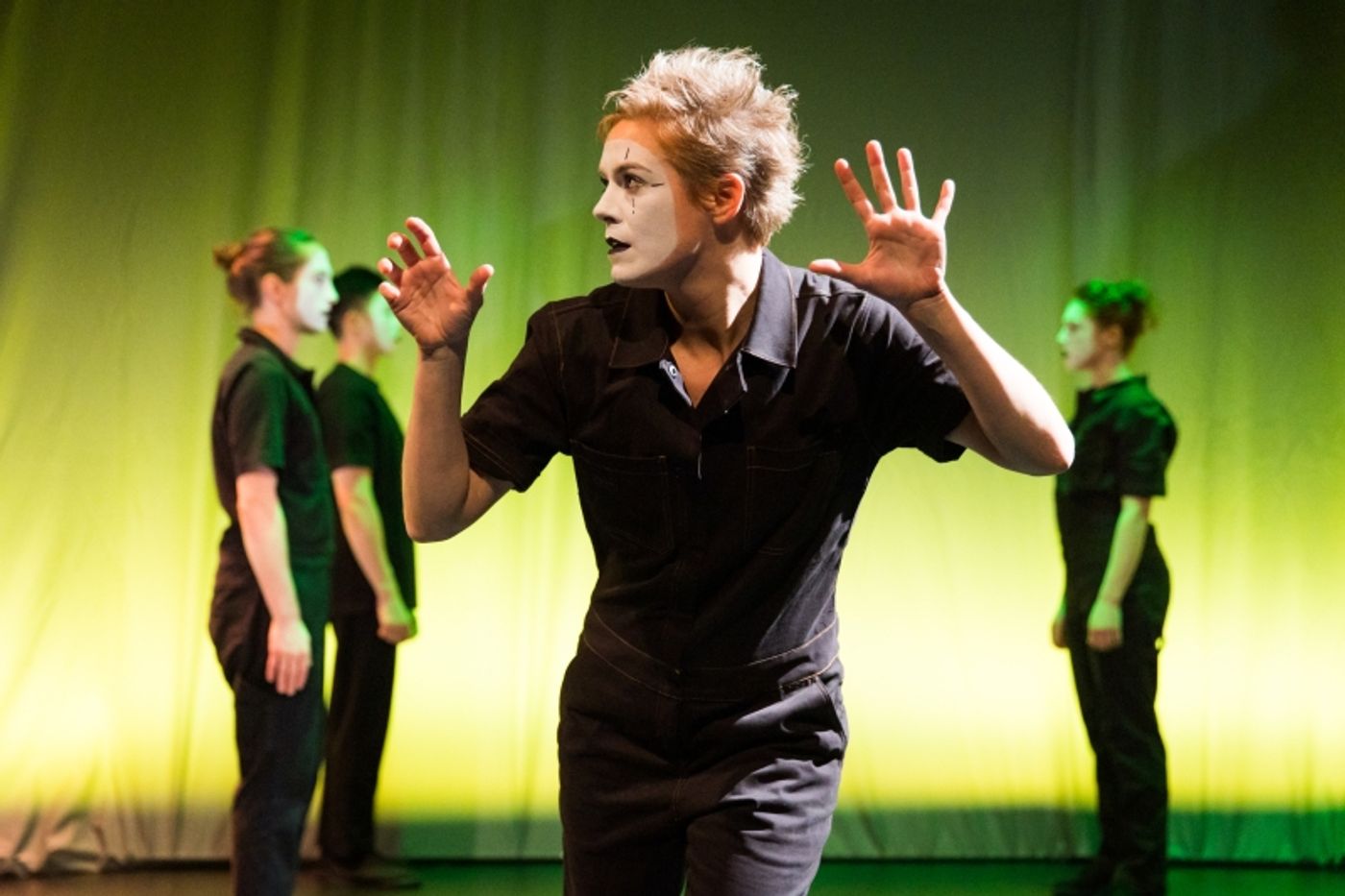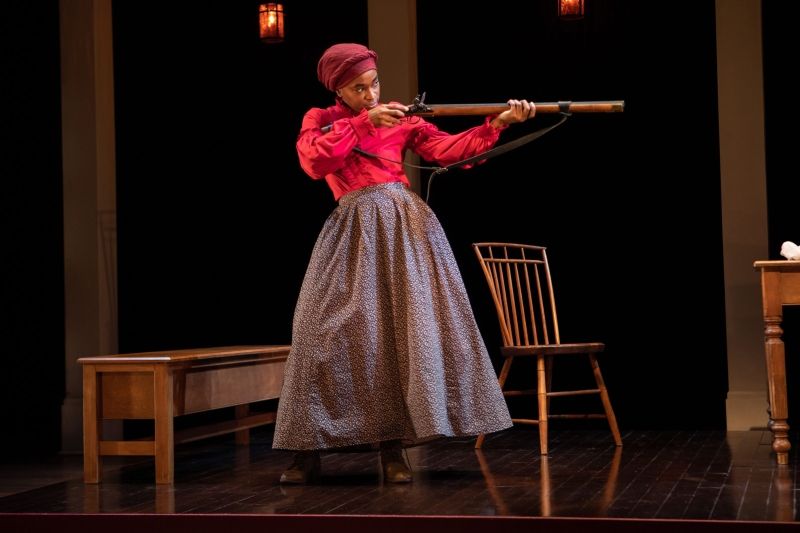Sunday Morning Michael Dale: Broken Box Mime Tackles Contemporary Issues
Also, I get emotional at Suffs and Dominique Morisseau encourages laughter at Confederates.
It took me more than ten years to see a performance by Broken Box Mime Theater...
...and I'm ashamed of how I've squandered away over a decade of playgoing. If all their shows since the company's inception in 2011 have been as fun, inventive and, surprisingly, socially relevant as their current offering, Take Shape, I would have become a regular attendee years ago.

and Tasha Milkman (Photo: Bjorn Bolinder)
Housed at the intimate Jeffrey and Paula Gural Theatre at A.R.T./NY Theatres (general admission tickets $25 in advance), music director Jack McGuire mixes the soundscape from a corner of the tiny playing space.
Led by artistic director Becky Baumwoll, the ensemble of performers/creators worked together to write and stage Take Shape, a series of physical vignettes that, in one way or another, depict how things transform or evolve. (Keeping within the theme, the one-sheet program comes with its own origami instructions.)
Anyone who has tried to use COVID quarantine time to learn new skills would appreciate the comical depiction of a hapless would-be chef who can't quite keep up with a YouTube cooking lesson. I assume parents would get a special kick out of watching a couple trying to enjoy some romantic alone time while fixated on the baby monitor, while musicians may see themselves in a bot about a trombone trio trying to get in sync.
But there are also issue-oriented moments, like an intricately dramatized story of an apartment-dweller who, after pandemic relief is used up, is being evicted for not being able to afford the rent and a satirical look at questionable corporate commitment to sustainability.
More abstract visions include an astronaut getting accustomed to Earth-bound gravity and a hermit crab outgrowing its shell. Cinthia Chen's projections and Yang Yu's lighting greatly contribute to the evening's more meditative moments.
Running through May 1st, Broken Box has scheduled several relaxed performances for neurodiverse audience members and those with babies, and have upcoming Affinity Nights for deaf audience members, those in the theatre industry and those for whom English is not their first language, with notable guests joining the company for interactive talkbacks.
Reasons I was crying at the end of Shaina Taub's Suffs...
1) Watching musical theatre that works really well often brings me to tears and Suffs works really, really well.
2) I'm a sucker for endings that show how the younger generation will grab the baton handed to them from the older generation and carry on the fight in their own way.
3) I was thinking about the little girl sitting in my row and the group of teenage girls I saw going in and was happy that they were getting to see the kind of theatre I never saw when I was their age.
One of my favorite photo galleries in town...
...is in the lobby of The Public Theater, displaying production shots from the many decades of productions seen both at that space and in Central Park. I always enjoy pointing out to friends George E. Josephs' capture of Sam Waterston in their 1975 Hamlet and the iconic Paul Davis poster it inspired.
.jpg?format=auto&width=1400)
.jpg?format=auto&width=1400)
********************************************************************************
It's gotten to the point that whenever I'm sitting in a theatre, about to see a new play by Dominique Morisseau...
...I just assume that I might be about to see the recipient of the next Pulitzer Prize for Drama. I mean, with an excellent collection of exciting and intriguing works like Detroit '67, Paradise Blue, Pipeline and Skeleton Crew already to her credit, can it be long?

a??a??a??a??a??a??a??(Photo: Monique Carboni)
My guess is that Confederates, which tells parallel stories of maneuvering through institutionalized racism through the experiences of an enslaved Black woman during the Civil War and a contemporary Black woman who is a tenured university professor, will get a heck of a lot of consideration.
Morisseau has long been an advocate for encouraging audible reactions from audience members that go beyond the usual applause and laughter; a cause that has caught on so much this season that several plays by Black authors have begun with pre-show announcements encouraging those who wish to be verbal not to hold back.
Confederates wasn't the first time the program for a Dominique Morisseau play included an inserted message from the playwright encouraging vocal responses, but it was the first time I noticed her note, titled "Playwright's Permissions for Engagement" really focused on telling audience members that it was okay to laugh.
"The subject matter might make you think that there is no room for humor," she writes. "That is a lie. The humanity of both the folk in the present and in the past during times of enslavement mean that they are full and complex. They are not simply downtrodden or in a perpetual state of abuse."
I've often referred to Dominique Morisseau as the most exiting playwright of the 21st Century, and while I'll admit to not feeling completely comfortable laughing at all of the humor in Confederates, one of the reasons I go to theatre is to not feel completely comfortable.
Curtain line...
Annie III: Annie finds out Daddy Warbucks made his fortune selling munitions during The Great War and that her life of luxury was paid for by human suffering. She runs away and joins The Group Theatre's production of Waiting For Lefty when Star-To-Be breaks her leg on opening night. Workers at one of Warbucks' factories are in the audience and are inspired to unionize and strike. The score is made up of trunk songs Kurt Weill and Bertolt Brecht cut from The Threepenny Opera.
Videos


